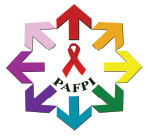Capacity Building
Positive Action Foundation Philippines Inc., capacity building refers to the process of strengthening the knowledge, skills, systems, and resources of institutions, agencies, and community-based organizations to effectively respond to the HIV/AIDS epidemic. Capacity building efforts are essential for enhancing the ability of organizations to plan, implement, monitor, and evaluate HIV/AIDS programs and services. PAFPIcares will provide capacity building to our volunteers and staffs to equip and enable them enhance education as part of our organizational components and strategies involved in organizational HIV and AIDS capacity building:
- Training and Education: Providing comprehensive training and education programs to staff members, volunteers, and stakeholders on various aspects of HIV/AIDS prevention, care, treatment, and support. This includes training on HIV testing and counseling, antiretroviral therapy (ART), prevention of mother-to-child transmission (PMTCT), stigma reduction, and community mobilization.
- Technical Assistance: Offering technical assistance and mentoring to strengthen organizational systems and procedures related to HIV/AIDS programming. This technical assistance is also provided to community support group PLHIV organization This may involve support in program planning, budgeting, monitoring and evaluation, data management, and quality improvement.
- Resource Mobilization: Building capacity in resource mobilization and fundraising to secure funding for HIV/AIDS programs and services. This includes developing grant writing skills, establishing partnerships with donors and funding agencies, and diversifying funding sources.
- Community Engagement: Engaging communities affected by HIV/AIDS in program planning, implementation, and evaluation. Building partnerships with community-based organizations, faith-based groups, and key population networks to ensure that programs are culturally appropriate, responsive to community needs, and sustainable.
- Policy Advocacy: Strengthening advocacy skills and networks to influence policies, laws, and regulations related to HIV/AIDS prevention, treatment, and care. Advocacy efforts may focus on promoting human rights, addressing stigma and discrimination, and advocating for increased funding and access to services for key populations.
- Monitoring and Evaluation: Building capacity in monitoring and evaluation to track program progress, measure impact, and improve program effectiveness. This includes developing monitoring and evaluation plans, building data collection and analysis skills, and using data for decision-making and program improvement. PAFPI is the member of Policy Planning and Committee and M&E of the Philippine National AIDS Council (PNAC)
- Quality Improvement: Implementing quality improvement initiatives to enhance the delivery of HIV/AIDS services and ensure adherence to national and international standards of care. This includes conducting quality assessments, identifying areas for improvement, and implementing strategies to strengthen service delivery.
- Leadership Development: Investing in leadership development to build the capacity of organizational leaders and managers to effectively lead HIV/AIDS programs and teams. This includes training in strategic planning, team building, conflict resolution, and decision-making.
- Knowledge Management: Establishing systems for knowledge sharing and learning within and across organizations to facilitate the exchange of best practices, lessons learned, and innovations in HIV/AIDS programming. This may involve developing learning resources, organizing learning events, and fostering communities of practice.
- Sustainability Planning: PAFPI advocacy develop sustainability plans to ensure the long-term viability of HIV/AIDS programs and services. This includes building financial management capacity, exploring income-generating activities, and strengthening organizational governance and leadership.
Overall, PAFPIcares HIV and AIDS capacity building is essential for building resilient and effective responses to the HIV/AIDS epidemic, strengthening health systems, and improving outcomes for individuals and communities affected by HIV/AIDS.
